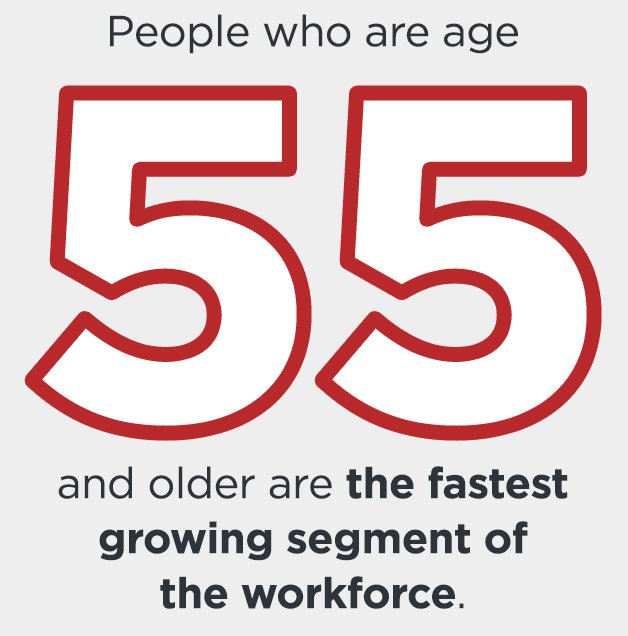Six Ideas for Building Work Ethic into Generation Z
Bob Wagner is hiring for three positions at his plastics manufacturing company. In the past, he’s filled these positions with high school and college students as well as recent graduates. These days, he is interviewing older job candidates. In fact, his top candidate is 72 years old.
Why you ask?
Bob would tell you he can’t find young adults (from Generation Z) with real work ethic. He’s grown weary of young employees who arrive late for work, request lots of time off, spend time during work hours scrolling social media feeds and even leave early from their shift. So, Bob is hiring older, more experienced candidates who are more likely to own an AARP card than the latest iPhone. “While the learning curve may be a bit longer, it’s refreshing to have people who buckle down, sacrifice, and are even willing to work overtime,” Bob says.
Bob is not alone.
Older Workers Have Old Fashioned Work Ethic
Three-fourths of the respondents who are 65 and older say that “hard work is very important” to them, according to a recent Wall Street Journal-NORC survey of Americans’ values. That number is lower among those 18-29 years old. People who are age 55 and older are the fastest growing segment of the workforce, according to federal data. Several employers say they are attractive to hiring managers for several reasons:
They are willing to take the opening shift.
They are not afraid to work long hours.
They are willing to do the closing shift.
They’re willing to cover during breaks.
They’re willing to cover during lunch.
They’re willing to be on call as needed.
We must acknowledge, however, that these are “old-fashioned” work ethic standards. While I still value them and love it when I meet anyone who embraces them, many young workers don’t embrace them because they say they’ve “learned from the mistakes of older generations.” In a typical job scenario, Generation Z sees Baby Boomers and Gen Xers as workaholics, and they don’t want to fall into that trap. One 22-year-old said to me, “The older generations live to work. We younger generations work to live.” In our discussion, however, this Gen Zer clarified that he believed his generation does have a “work ethic.” It’s just different from older people, even a bit different from Millennials. So, how do we tap into this work ethic?
Six Ideas to Deepen Generation Z’s Work Ethic
To reach this same level of work ethic past generations exhibited, I believe we must cultivate it in a different manner. The following ideas will help tap into Gen Z’s work ethic.
1️⃣ Projects That Align with Their Passion Deepens Work Ethic
Older staff would work hard at a job, even if they didn’t like it, because it was right. Gen Z turns that upside down and wants to love their job first. They will then work hard out of passion. Studies show that organizations that align themselves with an employee’s individual values develop a more effective workforce, experience lower turnover and deepen work ethic.
2️⃣ Mentoring and Personal Connection Deepen Work Ethic
Past generations worked hard on their job, even if they didn’t have a personal relationship with the employer. Generation Z wants to know and be known by their employer and is likely to stay and give more when a relationship extends beyond work topics. Our focus groups with Gen Z workers reveal that their work ethic deepens when they’re in a mentoring relationship.
3️⃣ Having a Voice Deepens Work Ethic
We’ve all heard the phrase: people support what they help create. I bet you do too. When we let people weigh in, we tend to gain buy-in from them. And when a person buys into a project, they tend to work harder at it. They feel ownership. Along the way, the grit originates from within.
4️⃣ Autonomy and Flexibility Deepens Work Ethic
Older staff have typically aligned with older business practices, such as eight hours a day, in the office, and maybe even with some monotony. Gen. Z prefers hybrid work environments and more autonomy and flexibility. Their work ethic increases when they feel in control of their day.
5️⃣ Meaning and Mission Deepen Work Ethic
Older generations are inclined to be motivated by external goals and quarterly reports of how the business succeeded at reaching their targets. Generation Z wants work to have meaning. Employers increase their work ethic when they attach even menial tasks to the big picture. Gen Z staff want to feel as though their specific position contributes to the organization’s mission.
6️⃣ Security and Steadiness Can Deepen Work Ethic
While high schoolers test high in entrepreneurship, once they enter the workplace, Gen Z desires a steady paycheck and a secure job. Consider this—Gen Z struggles more with mental health problems than any other generation. According to the Journal of Psychiatric Research, Anxiety levels have risen 92 percent since 2010, in 18 to 25-year-olds. We’ve found when anxiety is up during a workday, work ethic declines. So why not remove that barrier and provide a sense of security (as much as possible) and watch their resilience increase? When we lean in, they lean in.
One more reminder:
Gen Z has already established a reputation for being socially conscious and committed to giving back. So, if you want to see work ethic rise, show how the work you (and they) do specifically contributes to making their world better. This taps into the heart of Generation Z.


